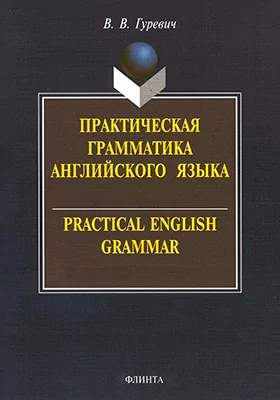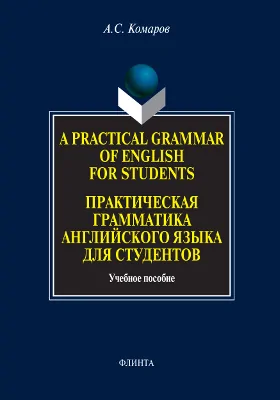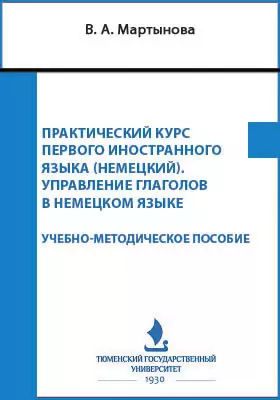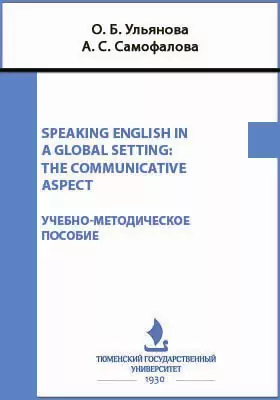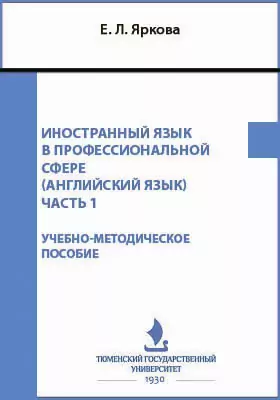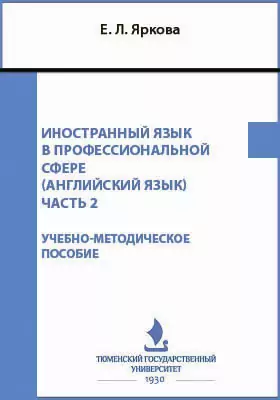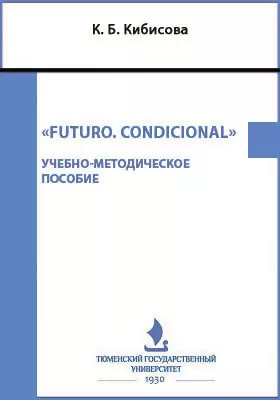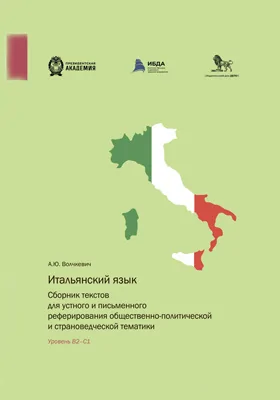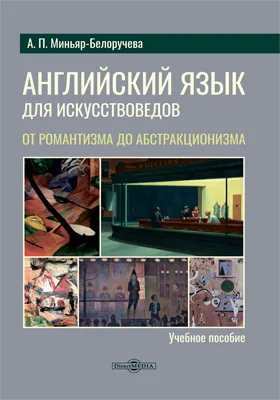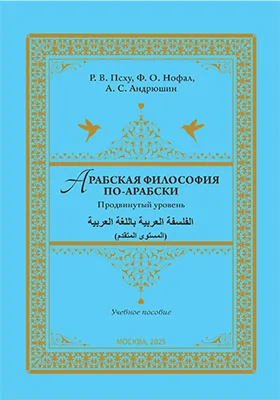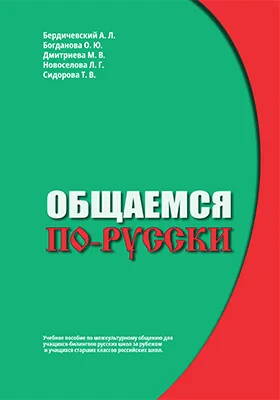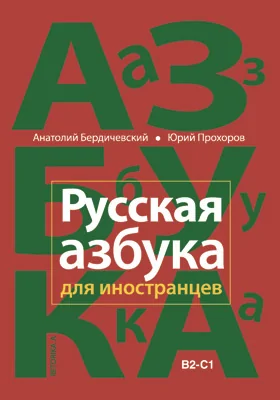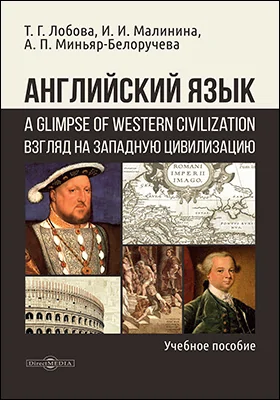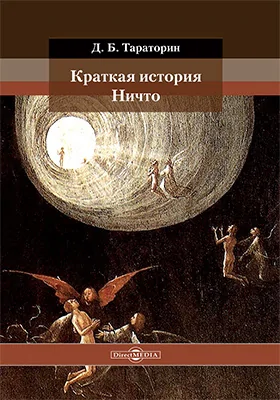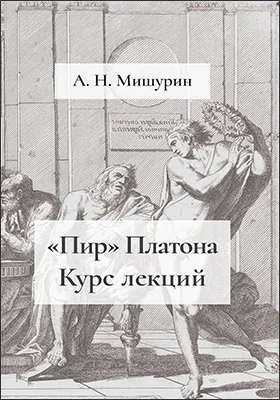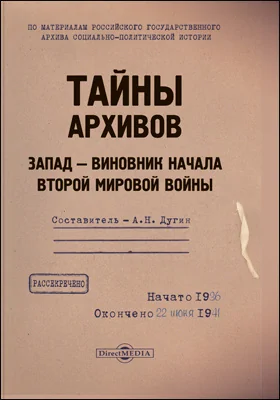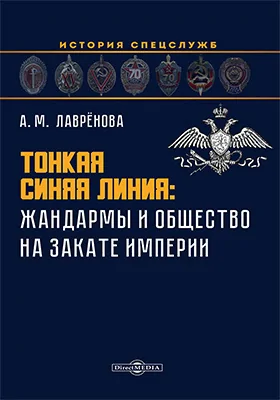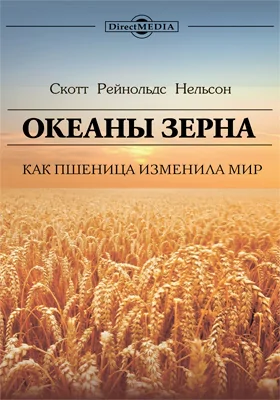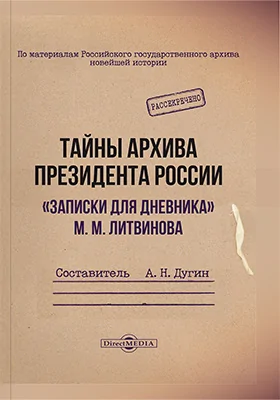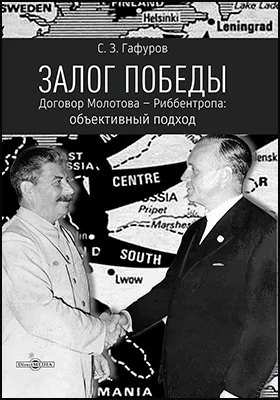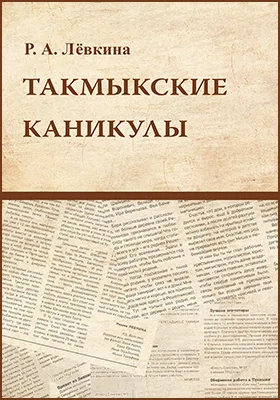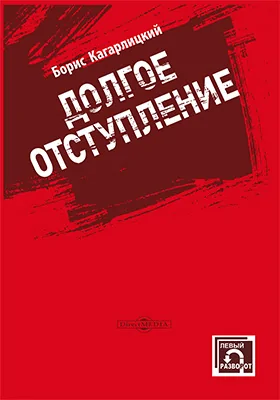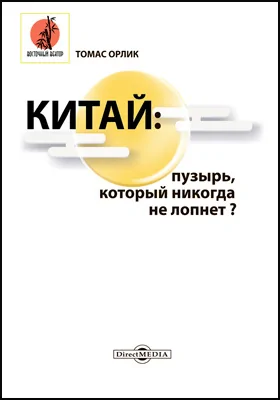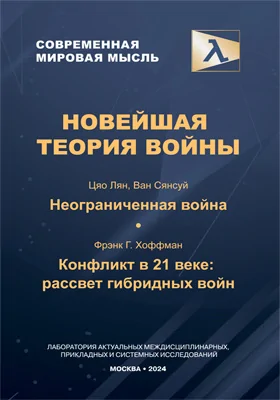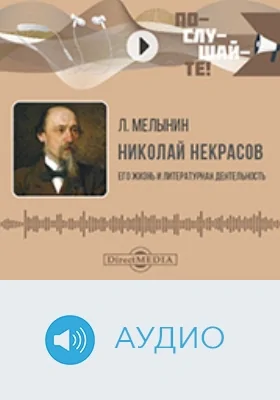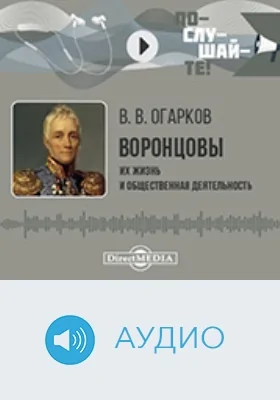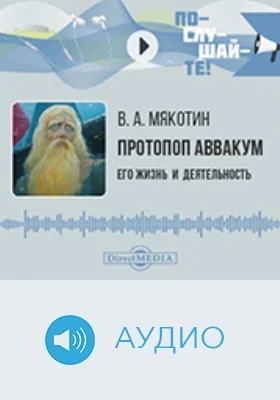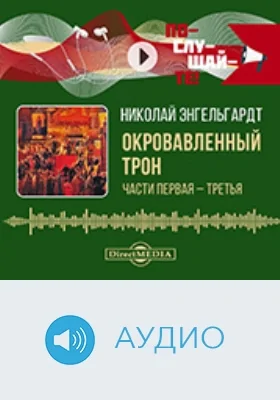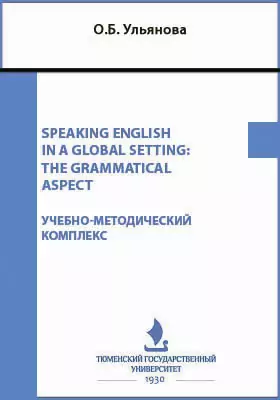
Speaking English in a global setting: the grammatical aspec : учебно-методический комплекс для студентов бакалавров направления 45.03.02 Лингвистика
Здесь можно купить книгу "Speaking English in a global setting: the grammatical aspec : учебно-методический комплекс для студентов бакалавров направления 45.03.02 Лингвистика" в печатном или электронном виде. Также, Вы можете прочесть аннотацию, цитаты и содержание, ознакомиться и оставить отзывы (комментарии) об этой книге.
Место издания: Тюмень
Страниц: 48
Артикул: 75387
Возрастная маркировка: 16+
Краткая аннотация книги "Speaking English in a global setting: the grammatical aspec"
Данный учебно-методический комплекс представляет собой образовательный ресурс для моделирования и упорядочивания знаний по грамматике и содержит теоретический обзор основных элементов грамматической системы английского языка. Систематизация грамматического потенциала способствует совершенствованию языковой компетенции учащихся на продвинутом этапе. Комплекс состоит из двух частей. В первой части грамматическая система языка рассматривается как ресурс для отражения единиц и отношений реального мира человека в грамматических разрядах слов. Во второй части представлены способы кодирования ситуаций реального мира посредством разно-уровневых синтаксических конструктов. Учебно-методический комплекс завершается приложением и списком литературы.
Содержание книги "Speaking English in a global setting: the grammatical aspec : учебно-методический комплекс для студентов бакалавров направления 45.03.02 Лингвистика"
PART I. GRAMMAR IS A RESOURCE FOR EXPRESSING MEANING. MAPPING REALITY ONTO GRAMMAR
1. Notional Parts of Speech
2. Functional Parts of Speech
PART II. GRAMMATICAL VARIATION. THE CORRELATION OF SITUATIONS AND SENTENCE TYPES. SYNTAX: SENTENCE TYPES
1. Grammatical variation via Sentence Types types of sentences: simple, composite, semi-composite
2. Grammatical variation via Parts of a Sentence
3. Grammatical variation via Situation Modality
APPENDIX: ASSIGNMENTS
REFERENCES
Все отзывы о книге Speaking English in a global setting: the grammatical aspec : учебно-методический комплекс для студентов бакалавров направления 45.03.02 Лингвистика
Отрывок из книги Speaking English in a global setting: the grammatical aspec : учебно-методический комплекс для студентов бакалавров направления 45.03.02 Лингвистика
32 situation and is grammatically expressed by determiners, tense, and modality. Determiners ground things in the current discourse, tense grounds situations in time and reality space, and modality grounds situations in potentiality space. The information that a speaker provides on situations (semantically, the aspectual type, the time, the type of reality) is expressed within the verb com-plex (grammatically, these are aspect, tense, modality) in a sentence. Aspect specifies the temporal structure of a situation, thus is part of the situation itself. Tense specifies the time of a situation and at the same time invokes notions on its reality status. Whenever we think or speak of events or states we refer them to and assess them with respect to reality. Reality evolves from the past to the present into the future. The known reality comprises the situations which we know occurred in the past. Any thought, emotion, perception, event that we experience at the present moment are parts of immediate reality. Both known reality and imme-diate reality are thought to be factual reality. A future situation that we can more or less safely predict from experi-ences in the past or present belongs to projected reality. Present or future situations that we judge as having the potential to become realized belongs to potential reality. Past events and situations that we regret of and events we have no knowledge of which applies to most events in the world and situa-tions which we only imagine or wish to occur, belong to the world of unreality. Speakers’ attitude to reality is called modality. Modality characterizes a situa-tion as having potential reality or belonging to unreality. Modality can be ei-ther objective (potential reality) or subjective (unreality). THE MODEL OF REALITY Known reality Past time Immediate reality Present time Factual reality Projected reality Future time Potential reality Present time + Future time modal verbs Past unreality Modality Unreality P...
Ульянова О. Б. другие книги автора
С книгой "Speaking English in a global setting: the grammatical aspec" читают
Внимание!
При обнаружении неточностей или ошибок в описании книги "Speaking English in a global setting: the grammatical aspec : учебно-методический комплекс для студентов бакалавров направления 45.03.02 Лингвистика (автор О. Ульянова)", просим Вас отправить сообщение на почту help@directmedia.ru. Благодарим!



